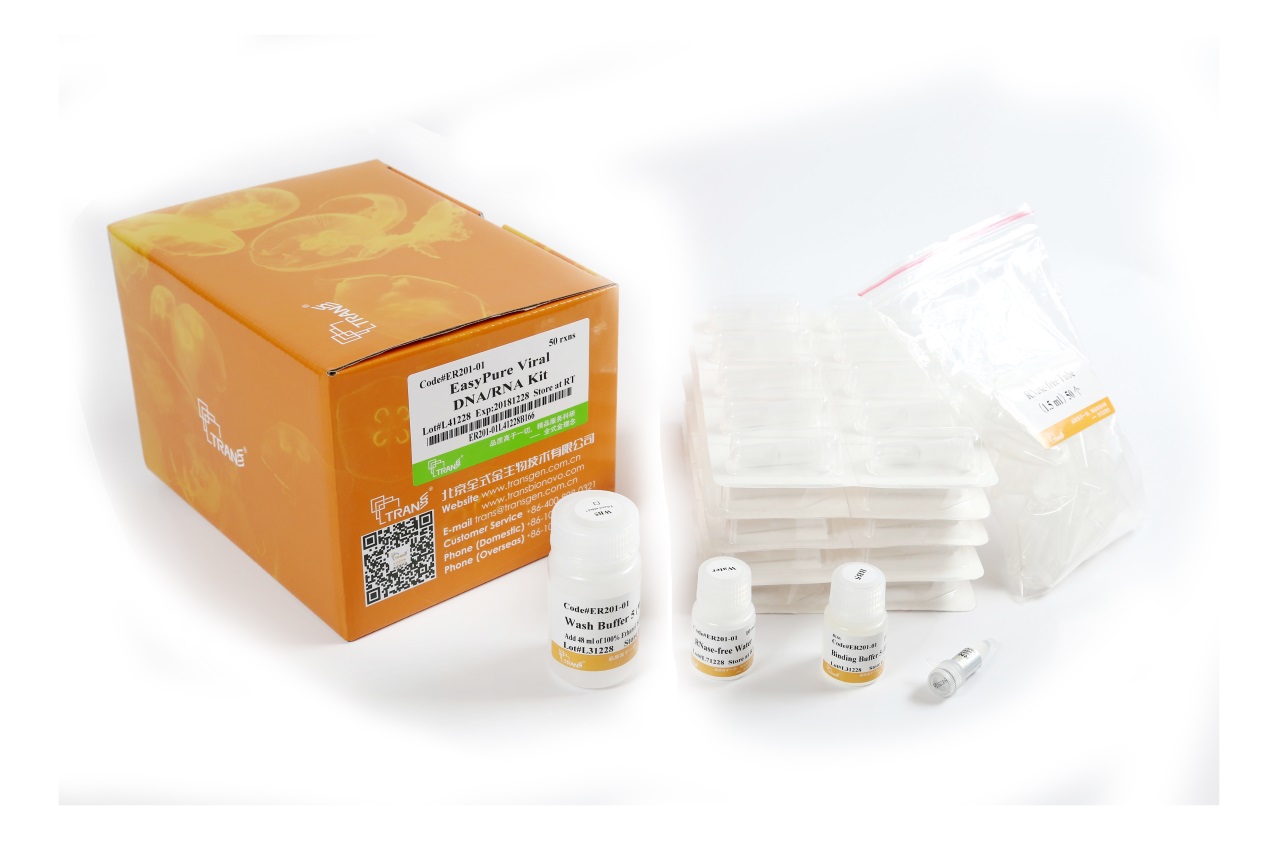Component | ER201-01 (50 rxns) | ER201-02 (200 rxns) |
| Binding Buffer 5 (BB5) | 15 ml | 60 ml |
| Wash Buffer 5 (WB5) | 12 ml | 2×24 ml |
| Proteinase K (20 mg/ml) | 1 ml | 4×1 ml |
| RNase-free Water | 10 ml | 20 ml |
| RNase-free Tube (1.5 ml) | 50 each | 200 each |
| RNA Spin Columns with Collection Tubes | 50 each | 200 each |
EasyPure® Viral DNA/RNA Kit
Cat# ER201-02
Size : 200rxns
Brand : TransGen Biotech
EasyPure® Viral DNA/RNA Kit
Catalog Number: ER201-01
Price:Please inquire first
Product Details
EasyPure® Viral DNA/RNA Kit utilizes a unique lysis buffer to lyse virus and release DNA / RNA. The released DNA / RNA is effectively purified after specifically binding to a silica-based spin column. It is suitable for isolating viral DNA/RNA from up to 200 μl of plasma, serum, whole blood, tissue homogenate, cell-free body fluid, nasopharyngeal or oropharyngeal aspirate/wash, bronchoalveolar lavage fluid (BALF), tracheal aspirate, sputum, nasopharyngeal or oropharyngeal swab and animal cell culture supernatant. The isolated DNA/RNA with high purity can be applied in PCR, RT-PCR, qPCR, qRT-PCR, etc.
At 15℃-30℃ in a dry place for one year.
At room temperature
1 Pu J, Liu Y, Zhang J, et al. Virus disinfection from environmental water sources using living engineered biofilm materials[J]. Advanced Science, 2020.(IF 15.84)
2 Wang Y, Luo W, Huang L, et al. A novel lncRNA linc-AhRA negatively regulates innate antiviral response in murine microglia upon neurotropic herpesvirus infection[J]. Theranostics, 2021.(IF 11.55)
3 Wang Y, Luo W, Wang X, et al. MAMDC2, a gene highly expressed in microglia in experimental models of Alzheimers Disease, positively regulates the innate antiviral response during neurotropic virus infection[J]. Journal of Infection, 2022.(IF 38.63)
4 Lu S, Luo S, Liu C, et al. Induction of significant neutralizing antibodies against SARS-CoV-2 by a highly attenuated pangolin coronavirus variant with a 104nt deletion at the 3'-UTR[J]. Emerging Microbes & Infections, 2023.(IF 19.56)




